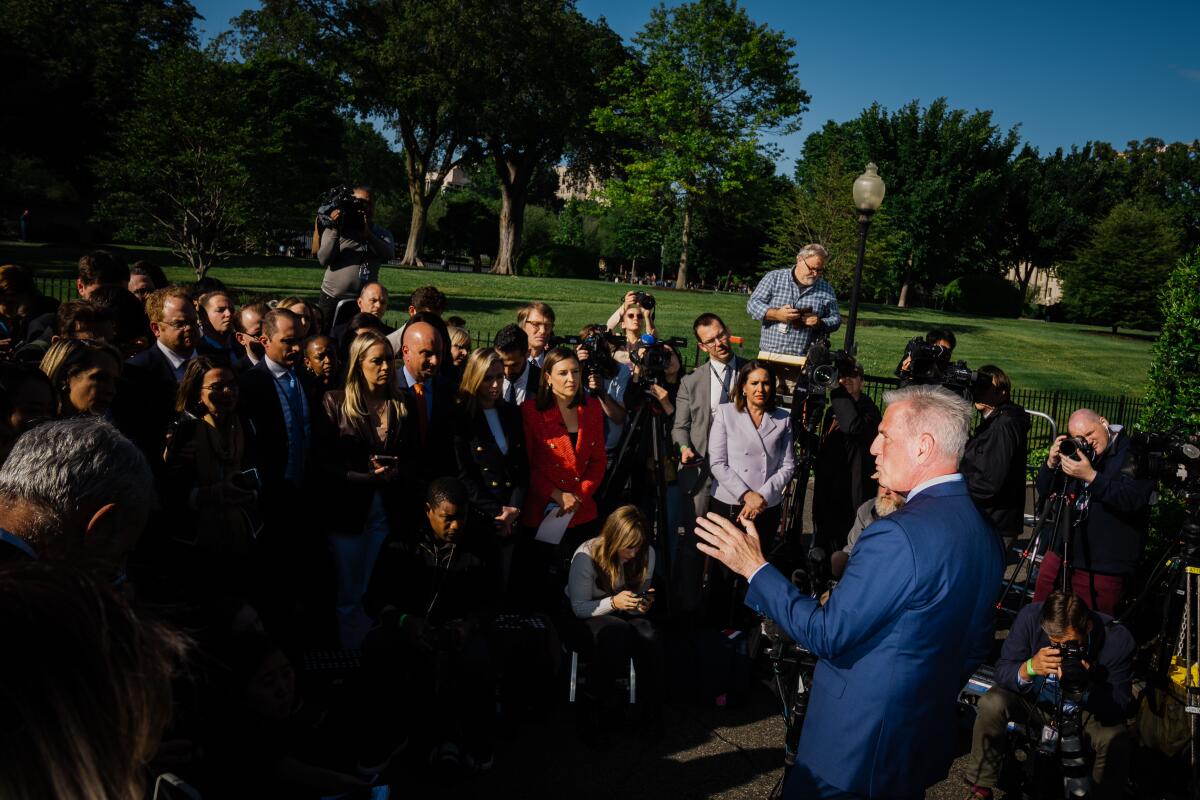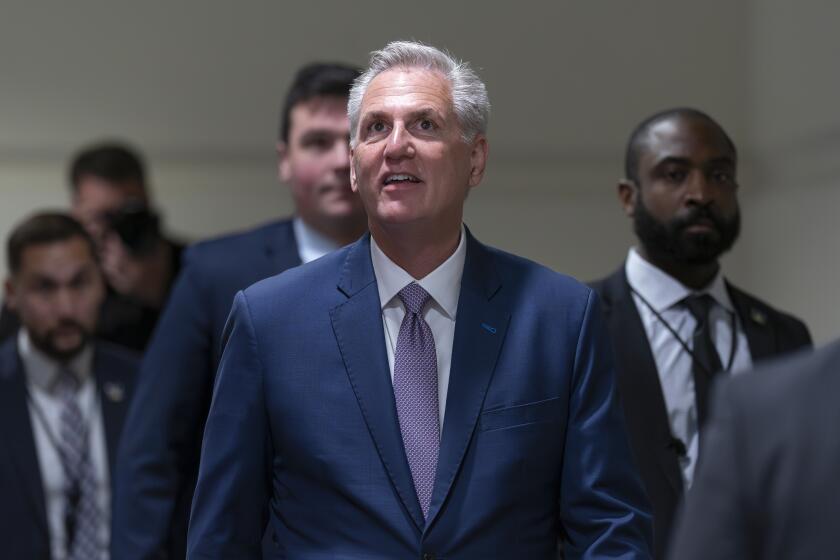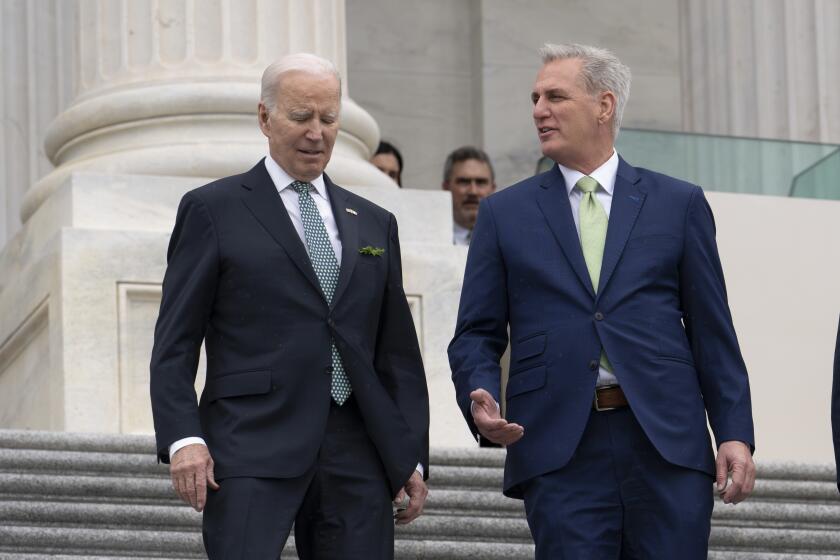Editorial: No more drama. Congress must pass debt ceiling or risk harming U.S. economy

President Biden is right to engage with congressional leaders, including House Speaker Kevin McCarthy, to discuss the looming financial crisis if Congress doesn’t expeditiously raise the debt ceiling. Talks at the White House on Tuesday predictably didn’t produce an agreement, but White House officials and congressional staffers have been in discussions. A meeting of Biden and congressional leaders scheduled for Friday has been postponed, perhaps a sign that those lower-level talks are making progress.
One possible scenario is that the two sides will reach an understanding that would involve lifting the ceiling so that the nation can pay its debts and a separate undertaking to try to control future federal spending. Each party could then portray the result to its own benefit, with Republicans asserting a linkage between the two actions and the White House insisting that there was no connection. (On Tuesday Biden said: “I told congressional leaders that I’m prepared to begin a separate discussion about my budget and spending priorities, but not under the threat of default.”)
“Parallel” agreements might be an acceptable outcome, given the horrific alternative of default, which could propel the U.S. economy into recession. But Americans should recoil at the need for such a contrived solution to a problem that shouldn’t exist in the first place.
The debt ceiling bill passed this week doesn’t have a chance of becoming reality, but its contents show us that House Republicans don’t care about the welfare of the nation’s youth.
“Everybody in this meeting reiterated the positions they were at,” McCarthy said after Tuesday’s meeting. That statement implies a dangerously false equivalence between the two parties’ positions.
The rightness of Biden’s position — that Congress should raise the debt ceiling without major conditions — is self-evident. Paying the nation’s bills isn’t just a political and moral imperative; it’s vital to the strength of the economy. The United States can’t afford to be perceived as what Biden called “a deadbeat nation.” How much Congress should spend in the future is a different question.
Nor, despite what McCarthy says, have House Republicans “done our job” by passing legislation that would raise the debt ceiling by $1.5 trillion in exchange for drastic restrictions in federal spending. Among other unconscionable consequences, that legislation if enacted — fortunately, an unlikely possibility — would deny resources to schools in California that serve more than 4 million low-income children.
It would also cut renewable energy tax breaks passed last year, while increasing fossil fuel production. That’s a no-go under any circumstances.
Congress raised the debt ceiling three times under President Trump and six times under President Obama. But it may be harder now, increasing the chances of catastrophe.
Republicans control the House, however narrowly, and they have the right to participate in decisions about future spending. But they must pursue their fiscal agenda through the regular budget and appropriations process without commingling it with the raising of the debt ceiling. The jousting with the Biden administration on this issue exemplifies the political swamp that Republicans like to decry.
Ideally the debt ceiling would be abolished altogether. That would end the recurring melodrama in which payment of the nation’s bills becomes a political football and commentators dust off far-fetched plans to get around the debt ceiling such as invoking the 14th Amendment or minting a $1-trillion coin. Congress must raise the debt ceiling — and then turn its attention to spending priorities for the future.
More to Read
A cure for the common opinion
Get thought-provoking perspectives with our weekly newsletter.
You may occasionally receive promotional content from the Los Angeles Times.












